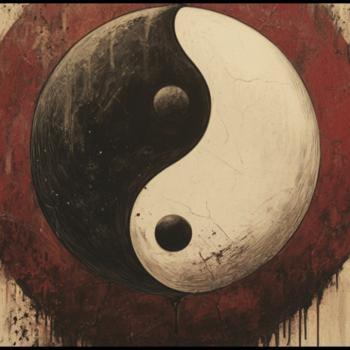
This article is in response to something published by Brett McCracken a few days ago on the Gospel Coalition website. His post, “Heresy Often Begins With Boredom“, had many good points that I agreed with, although I disagreed quite strongly with most of his conclusions.
In good faith, I responded to him directly on Twitter and pointed out a few of these issues, but he declined to respond to those comments. So, I wanted to publish my thoughts here and hopefully provide a counterpoint and a contrast to his observations. If nothing else, consider this “equal time.”
McCracken’s post is essentially a response to the book Bad Religion, by Ross Douthat which, he says, “makes the compelling case that heresies often begin with attempts to neatly resolve the inherent paradoxes of the Christian faith, opting for either/or where orthodoxy is able to hold the both/and in tension.”
He goes on to say:
“This is true of how many heresies begin. When there are knotty paradoxes that are hard to wrap one’s mind around (e.g., the full divinity and full humanity of Christ), we might be tempted to choose one or the other (e.g., Gnostics downplaying Christ’s humanity). We see this even with modern heresies. Those who can’t handle a God who is simultaneously loving and wrathful just dismiss one or the other.”
I’m tempted to respond to this last sentence especially since it assumes that God is both perfectly loving and full of wrath at the same time, even though Scripturally we are told that “God is love” [1 John 4:16] and never told that “God is wrath” or “God is vengeful”, etc.
In fact, what we’re told is that God’s love endures forever and God’s wrath [whatever that may be] lasts for a moment. [See Psalms 30; 107; 136; etc.]
However, this isn’t the portion of the article which most concerns me. It’s this part:
“But church tradition—orthodoxy and orthopraxy passed down from generation to generation—is a source of guidance and wisdom we should treasure.
“Sadly, many Christians today have bought into the chronological snobbery of our age, where “the newer is the truer” and the past is at best undervalued and at worst viewed with scorn. Many Christians are either ignorant of Christian history, bored by it, or both. They are not compelled by the idea of inheriting a Christianity that has more continuity than discontinuity with the faith of their great-grandparents. They are compelled by a “fresh,” “relevant” Christianity that dispenses with all the old, dusty things in favor of new, shiny things. But this anachronistic posture is dangerous and prone to all manner of theological confusion.”
Now, to be very honest, I agree 100% with his statement here. I really do. But, where we diverge is in how far back we go to determine what is “true” and how recently we determine what is “new.”
For example: The prevailing doctrine of the Christian church for the first 500 years of history was Universal Reconciliation. That’s “a source of guidance and wisdom we should treasure,” in my estimation.
I’ve written on this topic here and elsewhere on many occasions. But in a nutshell there have always been three views of the Afterlife held by Christians, historically:
“In the first five or six centuries of Christianity there were six known theological schools, of which four (Alexandria, Antioch, Caesarea, and Edessa, or Nisibis) were Universalist; one (Ephesus) accepted conditional immortality; one (Carthage or Rome) taught endless punishment of the wicked.” (From the New Schaff-Herzog, page 96, paragraph 3)
“The earliest system of Universalistic theology was by Clement of Alexandria who was the head of the theological school in that city until 202 A.D. His successor in the school was the great Origen, the most distinguished advocate of this doctrine in all time.” (From the New Schaff-Herzog, page 96, paragraph 2)
Eternal Torment was a view that existed in the early Christian Church, but it was decidedly a minority view. This didn’t change until after the time of Augustine.
So, today this view [Eternal Torment] has become the dominant one in the Western Church, but it was not always the case. It’s a “Newer” view that many, including those who post at the Gospel Coalition, find “Truer” in spite of the great Christian Tradition to the contrary.
Another “Newer” view that many claim to be “Truer” is that Homosexuality is condemned by the New Testament. This is especially alarming since Jesus never said anything about this topic, and neither did the New Testament until 1946 when the English word “Homosexuality” was first added to the text.
Before that, no English Bibles included the word “Homosexual.”
This was a “Newer” view that has very rapidly become “Truer” the more often it is repeated by those who
are compelled by a “‘fresh,’ ‘relevant’ Christianity that dispenses with all the old, dusty things in favor of new, shiny things.”
this anachronistic posture is dangerous and prone to all manner of theological confusion.”
As long as we’re going to call out heretics for being enamored with “newer” doctrines, let’s also take time to acknowledge other recent additions to Christian Theology, like “Dispensationalism” which was invented by John Nelson Darby in 1830 [the same year Joseph Smith invented Mormonism], and today permeates most major Christian Seminaries and pulpits in the American Church; giving rise to all the Futurist “Left Behind” End Times hype which has plagued our nation ever since.
I’m a huge fan of going back to the Early Christian Church for inspiration and guidance, especially when it comes to Orthopraxy versus Orthodoxy. This is why I wholeheartedly embrace Non-Violence [because Jesus and the Early Church did], and caring for the poor [Ditto], and gathering in homes to share a meal with Christ [and only Christ] as our Head.
So, yes, please, let’s take a good, hard look at those Early Christians. Let’s see what they believed, and why. Let’s be brave enough to question whether our “Newer” theology is “Truer” or not.
If you want to believe in a God of wrath who burns His children forever, I suppose this is your right. And if you prefer to hold tightly to the idea that God hates gay people, even if the Scriptures don’t explicitly say so, this is also your prerogative.
But, let’s also not try to claim that those who believe differently than we do are enamored with some Theological “Flavor-of-the-Month” simply because it doesn’t square up with your views, [which, of course, are merely grounded in the unshakable bedrock of Orthodoxy]. You may find that your own views are “Newer” than you realize, and that what is “Truer” may be even older than you imagined.
**
Keith Giles was formerly a licensed and ordained minister who walked away from organized church 11 years ago, to start a home fellowship that gave away 100% of the offering to the poor in the community. Today, He and his wife live in Meridian, Idaho, awaiting their next adventure.
His new book “Jesus Unbound: Liberating the Word of God from the Bible”, is available now on Amazon and features a Foreword by author Brian Zahnd.
He is also the author of the Amazon best-seller, “Jesus Untangled: Crucifying Our Politics To Pledge Allegiance To The Lamb” with a Foreword by Greg Boyd.
Keith also co-hosts the Heretic Happy Hour Podcast on iTunes and Podbean. BONUS: Want to unlock exclusive content including blog articles, short stories, music, podcasts, videos and more? Visit my Patreon page.
Join me this summer at one of these upcoming events:
*Costa Mesa, CA – June 22 “United We Stand”
*Hot Springs, NC – July 11-14 “Wild Goose Festival”
Want Keith to come speak at your church or in your home town? Learn more HERE













